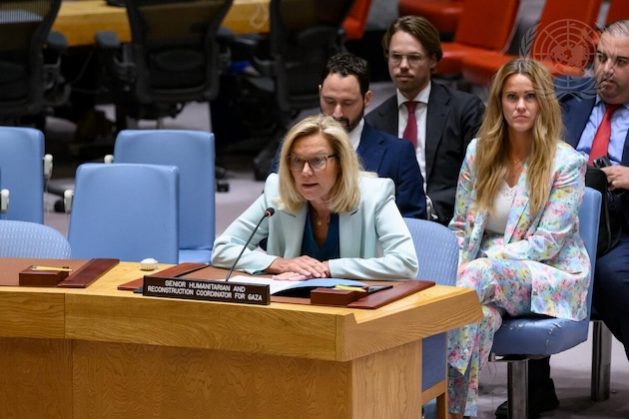UNITED NATIONS, Jan 31 (IPS) – Before the three-phased ceasefire deal—proposed by President Joe Biden and dragged over the finish line by the then-incoming Donald Trump administration—silenced the bombs and drones over Gaza and allowed for humanitarian aid to flow into the strip, there was United Nations Security Council Resolution 2720.
Adopted on December 22, 2023, and tabled by the United Arab Emirates, the resolution was created to streamline and accelerate the delivery and distribution of much-needed humanitarian aid to civilians in Gaza. However, critics of the resolution say that a lack of political will and cooperation from the Israeli government and COGAT, the aid coordination arm of Israel’s military—identified by UN bodies and aid organizations on the ground in Gaza as the primary obstruction to aid delivery and distribution—paralyzed the implementation of the resolution’s mandate, unnecessarily prolonging the suffering of Palestinian civilians in the battered and bloodied enclave.
COGAT did not respond to a request for comment.
The resolution also tasked Secretary-General António Guterres to appoint a senior humanitarian and reconstruction coordinator to expedite the mandate and to “establish a UN mechanism for accelerating the provision of humanitarian relief.” For that role, he chose Sigrid Kaag of the Netherlands. She officially started the job on January 8, 2024.
“There are thousands of trucks trying and failing” to enter Gaza, said Lana Nusseibeh, the UAE’s ambassador to the UN, in her remarks to the Council before the vote in December 2023. “Unless we take drastic action, there will be famine in Gaza.” The situation for Palestinians, she added, is “desperate” and “unbearable.”…




